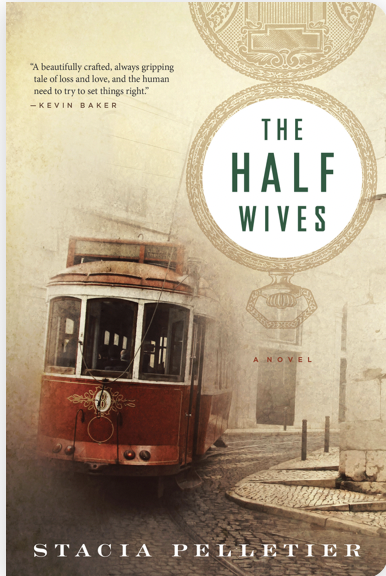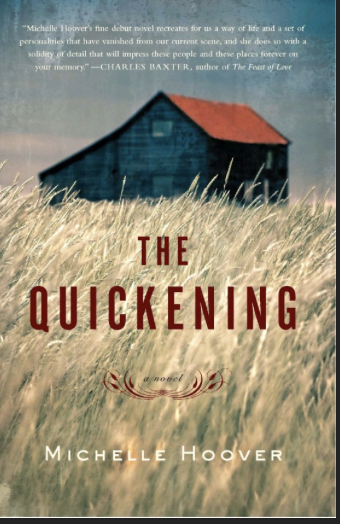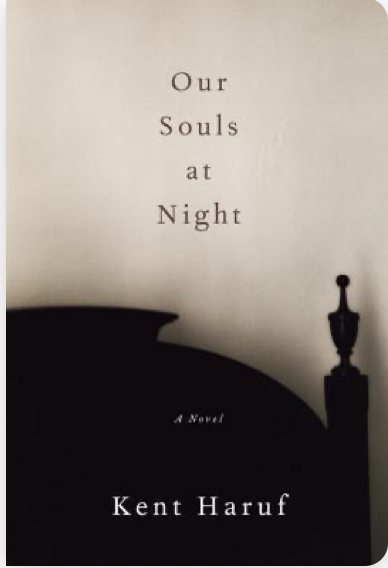
Recent Reviews

The Half Wives
I do love a book set in San Francisco. Hometown pride, I suppose.
Written by Stacia Pelletier and published in 2017, ‘The Half Wives’ is gripping and even hypnotic. Pelletier’s evocative descriptions of turn-of-the-century San Francisco are so immersive that the City feels like another character. It does take a couple of chapters to acclimate to the second-person narrator. But as the complex emotion of the characters emerge, the story crescendo toward a sad but satisfying conclusion.
The entire novel takes place on May 22, 1897. It was on May 22, sixteen years ago on that day that Henry and Marilyn Plageman’s 2-year-old son Jack died. Marilyn and Henry commemorate their son’s death yearly with a ritual at the San Francisco cemetery on Lone Pine Hill. But this year threatens to be different. The City of San Francisco intends to move the graves to Colma, a new cemetery south of the City. Because of the sweeping ocean views, the City believes the current cemetery could be used for homes and businesses. Jack knows that Marilyn can’t bear the thought of moving Jack to a new plot of land. So, Henry does what he can to stop the move. (Read the author’s note at the end of the book first. She explains how most San Francisco cemeteries were moved to Colma.)
After Jack’s death, each privately mourned Jack. Marilyn focused on charity work for an orphanage. And Henry started a relationship with a woman named Lucy, with whom he has a ten-year-old named Blue. He stays with them once a week.
Jack and Marilyn love one another. But like the San Francisco fog, Jack’s death hovers over them. His death is like an invisible string that connects them and restrains them from processing the reason Jack died. ‘The Half Wives’ is a unique and engaging read.

The Quickening
‘The Quickening’ was hard to put down. Michelle Hoover’s lyrical writing, compelling characters, and dramatic setting create a palpable tension. It is a story about two families struggling to survive on the isolated Midwest plains. As the families begin to rely on one another, mutual resentments accumulate. Using language as sparse as the plains, Hoover’s emotionally charged novel transports us to a time, place, and dialect that no longer exists.
In 1913 Mary Morrow walked the mile to meet her new neighbor. She longed for a friend. She had been raised in a city. It was where she met her abusive husband, Jack. On this vast prairie, only one friendship option exists. Her name is Edinan Current. Edina and Mary’s temperaments couldn’t be different. Edinan is content farming alone or with her gentle husband, Frank. Except for a church that plays a part in the story, these folks could be living on the moon. The book explores Edwina and Mary’s internal worlds and reveals their different fortitudes, attitudes, and character. Life proceeds over the years, and they help one another through miscarriages, hurt children, sick animals, failed crops, the Great Depression, a fire, encroaching poverty, and more isolation. Edinia and Mary have secrets; some are known to the other but never acknowledged. These families are intertwined not out of mutual admiration but by circumstance. Eventually, betrayal rears its ugly head. These two women make decisions that affect their families and the next generation.
The book is an homage to the families that farmed in isolation their 180 acres thanks to the Homestead Act. Feelings are not shared. People are tight-lipped and private. Hoover’s use of metaphors, simile, and allegories are breathtaking. Words are not wasted, and meaning exists in the words not written. This powerful story is about the emotional toll of hard work and heartache on two farmwives and their families as they toil on the Midwest plains. 4.5/5

Our Souls at Night by Kent Haruf
‘Our Souls at Night’ by Kent Haruf is a tender and touching novel. I love the book’s title and the implied double meaning. Like Haruf’s other five first-rate novels, this story occurs in the small fictitious town of Holt, Colorado. It is a beautiful meditation on the emotional isolation of aging. Haruf’s writing is intimate while reserved and simple, while nuanced.
The book’s plot is straightforward. Widow Addie Moore knocks on the door of her widower neighbor Louis Waters. Addie says to Louis, “I wonder if you would consider coming to my house sometimes to sleep with me. I mean we’re both alone. We’ve been by ourselves for too long. For years, I’m lonely. I think you might be too.” Addie’s bold proposal is not about sex, but rather a hope for companionship. Addie and Lucas are in their 70s and keenly aware that they have fewer years ahead of them than behind. Loneliness has been a constant companion since their spouses died and their children moved away.
The next day Louis calls Addie, “I’d like to come over tonight if that is still alright.”
And the story of Addie and Lucas’ adventure begins.
Night after night, they lay next to one another sharing the stories of their lives. The joys and delights, the mistakes and regrets. They discuss their deceased spouses, careers, grown children, and Addie’s grandson. They are not interested in what their lives have meant in a larger existential way. Rather the dynamic between Lucas and Addie initially feels like a therapist and a patient or a clergy member and a parishioner. Addie and Lucas don’t apologize or analyze their pasts. They do not express their regrets in teary confessions of self-flagellation, but rather they state the truths of their lives. And the sharing of their souls becomes healing because there is no judgment. Lucas and Addie respond to each other’s stories with empathy.
It is not all smooth sailing. Unresolved dynamics with adult children emerge and petty small-town gossip grows. Nonetheless, Addie and Lucas grow fond of one another and even come to love one another. Their connection is both ordinary and sacred.
This book is about grace, tenderness, vulnerability, and maybe even forgiveness. Most important, their companionship makes them happy. I wish the ending were different, but it is probably realistic. Kent Haruf died in Nov. 2014. His writing about the human condition will be missed. Though I appreciated all his books, the love, and grace in ‘Our Souls at Night’ makes this novel my favorite.
